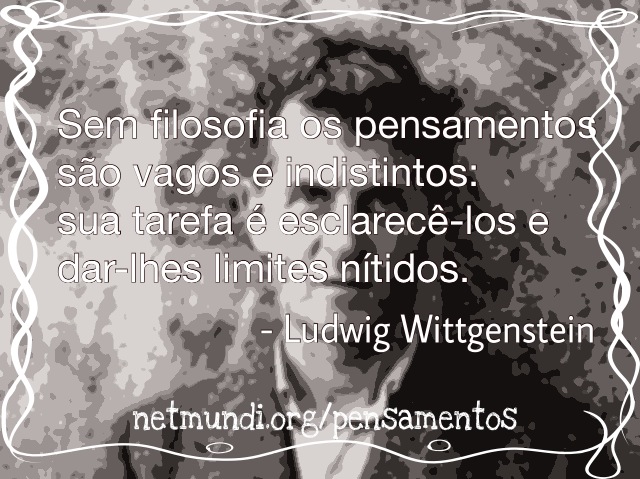

Indeed the whole idea of a subject that could yield such results is based on confusion and wishful thinking. There are no startling discoveries to be made of facts, not open to the methods of science, yet accessible “from the armchair” through some blend of intuition, pure reason and conceptual analysis. Wittgenstein claims that there are no realms of phenomena whose study is the special business of a philosopher, and about which he or she should devise profound a priori theories and sophisticated supporting arguments. But this dismissal disguises what is pretty clearly the real cause of Wittgenstein’s unpopularity withinĭepartments of philosophy: namely, his thoroughgoing rejection of the subject as traditionally and currently practiced his insistence that it can’t give us the kind of knowledge generally regarded as its Is self-indulgently obscure and that behind the catchy slogans there is little of intellectual value. Apart from a small and ignored clique of hard-core supporters the usual view these days is that his writing
#Ludwig wittgenstein professional
Wittgenstein's influence has been felt in nearly every field of the humanities and social sciences, yet there are widely diverging interpretations of his thought.A reminder of philosophy’s embarrassing failure, after over 2000 years, to settle any of its central issues.Īdmittedly, few would agree with this rosy assessment - certainly not many professional philosophers. rank both his Tractatus Logico-Philosophicus and Philosophical Investigations among the top five most important books in twentieth-century philosophy, the latter standing out as ".the one crossover masterpiece in twentieth-century philosophy, appealing across diverse specializations and philosophical orientations".

According to an end of the century poll, professional philosophers in Canada and the U.S. rank both his Tractatus Logico-Philosophicus and Philosophical Investigations among the top five most important boo Ludwig Josef Johann Wittgenstein (Ph.D., Trinity College, Cambridge University, 1929) was an Austrian-British philosopher who worked primarily in logic, the philosophy of mathematics, the philosophy of mind, and the philosophy of language.ĭescribed by Bertrand Russell as "the most perfect example I have ever known of genius as traditionally conceived, passionate, profound, intense, and dominating", he helped inspire two of the twentieth century's principal philosophical movements: the Vienna Circle and Oxford ordinary language philosophy. Described by Bertrand Russell as "the most perfect example I have ever known of genius as traditionally conceived, passionate, profound, intense, and dominating", he helped inspire two of the twentieth century's principal philosophical movements: the Vienna Circle and Oxford ordinary language philosophy. Ludwig Josef Johann Wittgenstein (Ph.D., Trinity College, Cambridge University, 1929) was an Austrian-British philosopher who worked primarily in logic, the philosophy of mathematics, the philosophy of mind, and the philosophy of language.


 0 kommentar(er)
0 kommentar(er)
